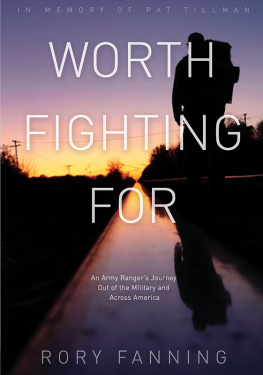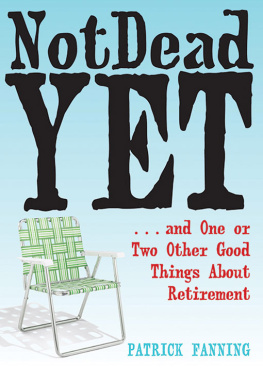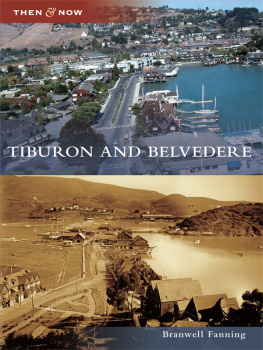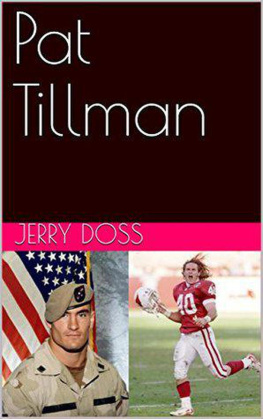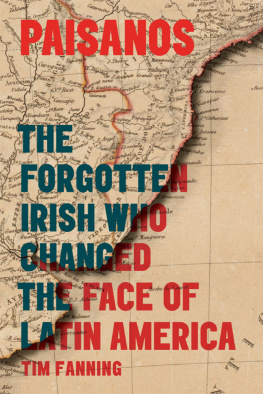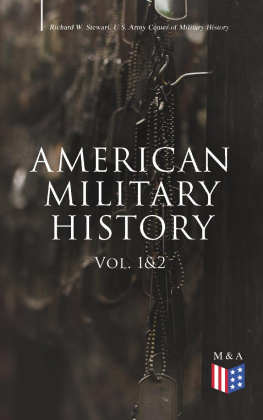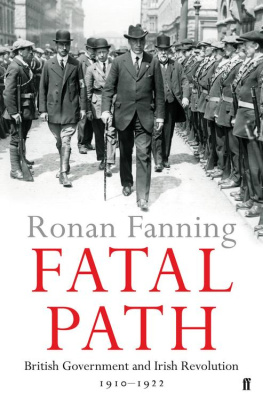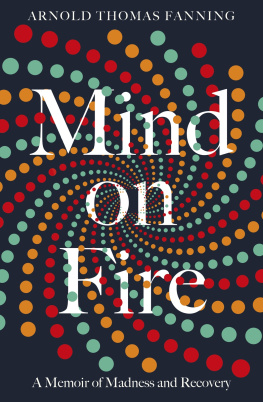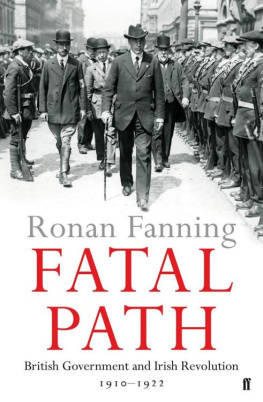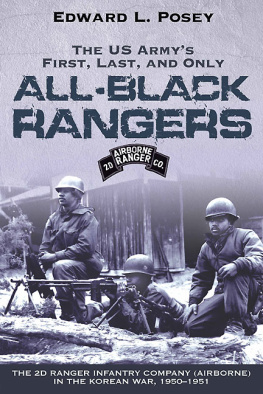Contents
2014 Rory Fanning
Published in 2014 by
Haymarket Books
P.O. Box 180165
Chicago, IL 60618
773-583-7884
info@haymarketbooks.org
www.haymarketbooks.org
ISBN: 978-1-60846-437-1
Trade distribution:
In the US, Consortium Book Sales and Distribution, www.cbsd.com
In the UK, Turnaround Publisher Services, www.turnaround-uk.com
In Canada, Publishers Group Canada, www.pgcbooks.ca
All other countries, Publishers Group Worldwide, www.pgw.com
Special discounts are available for bulk purchases by organizations
and institutions. Please contact Haymarket Books for more information
at 773-583-7884 or info@haymarketbooks.org.
Cover design by Eric Ruder.
This book was published with the generous support of the Wallace Action Fund and Lannan Foundation.
Library of Congress CIP data is available.
FORT BENNING, GA
March 23, 2003, 6:30 a.m.
On a sunny but brisk March morning in Georgia, I was feeling divided over whether or not I was doing the right thing for myself, my country, and the world by fighting the global War on Terror as an Army Ranger. It was after a workout and I was standing in line waiting for permission to enter a military cafeteria, along with a few dozen other soldiers. We stared at the ground, hungry and mostly silent as our warm breath hung in the air. I had returned to the US only a few weeks before, after a nine-month tour in Afghanistan.
A tan Humvee drove up and stopped at the end of the sidewalk where we stood. The window rolled down and we all heard, Hey Tillman, drop and give me twenty. The sergeant who had barked the order smiled a sinister smile. Tillman, who was standing a few feet from me, fell to the ground without hesitation and snapped out twenty strong, sharp push-ups, then stood up and, for a moment, stared at the sergeant who gave the order.
Pat Tillman broke no rules that morning. The sergeant wanted to show him who was in charge. When being disciplined by a higher-ranking non-commissioned officer, most privates and specialists look back at the officer with dead eyes, showing complete submission. Not Pat. Pat looked back with a moral authority and confidence that transcended rank. Pat towered over the sergeant in that instant. The sergeants command now looked hollow and forcedthe opposite of intimidating. He drove off.
Standing in the chow-hall line, Pat reminded me that the military is composed of people, not robots. We followed orders, we did what we were told, but it was only because we gave the higher ranks permission. Pats look showed me that we could stop the orders at any time. Pat Tillman was the first person to suggest to me that it was possible to stand up to the US military.
Pat and I never had the opportunity to become close. He and his brother Kevin were kind to me while I was going through a traumatic experience in the military and feeling utterly alone. I idealized them both because of that. But the fact remains that I am alive today, or at least less damaged, because of Pat Tillman.
Pat was killed by friendly fire in southwest Afghanistan in late April 2004. The military, scared of the fallout from the story, lied to those of us in the Ranger Battalion who werent at the sceneand then to the rest of the worldabout the circumstances of his death. They told us Pat died as the result of an enemy ambush. They lied. The cover-up was extensive and painted Pat as a poster boy for the War on Terror. A notebook in which he had sketched out some of his thoughts about the war was burned, along with his body armor. When the lies became public, there was a media firestorm; in response, Pats mother Mary Tillman wrote a terrific book called Boots on the Ground by Dusk . Anyone interested in Pats complete story should pick it up.
I was a conscientious objector the day Pat Tillman was killed. I had been in a six-month limbo, waiting to be sent to jail or to the big army to become a bullet stopper. Pat Tillman is the only reason I was allowed to leave the military. I was released seven days after his death, on my birthday. I didnt know why at the time, but the chain of command in my battalion had no time for me anymore.
I walked across the country for a lot of reasons. For one thing, I was trying to get my mind right. I wanted to be alone to think things through. I needed the option to interact with people if I chose to. Passing through towns on foot, with an excuse to stay or leave people, would give me a chance to gauge any developments and growth the walking would afford me. I also knew the value of good old-fashioned masochism. If I couldnt learn to understand my mental tics, Id diffuse them by walking with a lot of weight strapped to my back. The military had left me overwhelmed in the presence of strangers and even my friends and family. I knew I had to do something about that if I was ever going to feel a degree of self-possession in the company of others. Seeing a therapist never felt like an option: the thought of letting a stranger see the size and shape of my brain always felt like a violation of some unspoken self-sufficiency code. I was lost and didnt know how to ask for directions.
I also walked across the country because I wanted to see and learn as much as I could about the country I felt I had let down by quitting the military. Guilt, betrayal, a sense of adventure, ignorance, a desire to be accepted, pride, and promoting the legacy of a person who needed to be remembered: these were all reasons I decided I should hit the road.
As in the military, there had to be rules. I had to carry everything on my back, like I knew my friends deployed in Afghanistan and Iraq were doing. I had to stay as disciplined as I couldI had to walk every step from the Atlantic to the Pacific. No rides forward. If I did receive a ride to a house, a restaurant, or a must-see location, I would be dropped off in the exact spot where I had been picked up. I carried a single-person tent, a sleeping bag, a sleeping mat, and a BlackBerry, on which I took notes and posted to my blog at walkforpat.org.
I carried a sign:
Rory Fanning, who served in the Second Army Ranger Battalion with Pat Tillman, is walking from the Atlantic to the Pacific to raise money for the Pat Tillman Foundation. Visit walkforpat.org for information on how you can help.
I also carried a GPS device so people could follow my progress, two pairs of pants, ten pairs of socks, personal hygiene equipment, fifty yards of parachute rope, a winter hat, an iPod, gloves, baby wipes, a picture of my girlfriend Kate, an outdated laptopwhich I would send home six days into the walkand a hat with the number 42 on it. (Forty-two was Pats football jersey number at Arizona State.) I would later be given countless trinkets and mementoes, including the keys to a few cities and some Star Wars figures. The pack weighed between forty-five and fifty-five pounds for most of the walk.
Pat Tillman made a sacrifice for a cause bigger than his immediate material interest. He gave up millions for a shitty job. I thought his example could be an example to others in a country divided by enormous inequality in wealth and power. My goal was to raise $3.6 million: the value of the contract Pat gave up when he joined the military. I found that people from every walk of life donated what they could, whether that was thousands of dollars, a handful of change, or an entire shifts tips.
When I returned from the walk I had a strong need to go back and retrace my steps via history books. I wanted to know as much about the history of these states as possible. I felt connected to the land in the US but I also knew that the mini-malls, the asphalt, and even the trees I walked by, over, and through didnt tell the whole storyfar from it. The people I met were products of history, and there was much to learn from them. I did garner some historical information, but I didnt feel like I was getting the whole story. So I did my best to uncover as much as I could about the roads I took and the states I walked through when I got home. I have shared some of it with you in this book, through brief sections in each chapter. These are stories about other kinds of conscientious objectors, of people who gave their all for a cause, people who thought long and hard about what was rightpeople like Pat.
Next page
